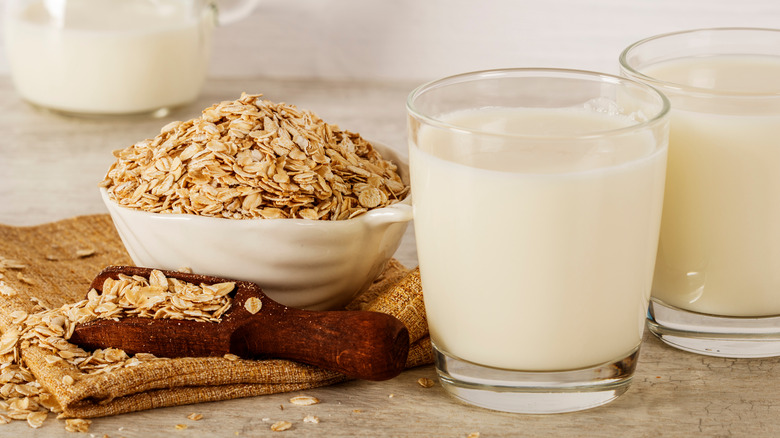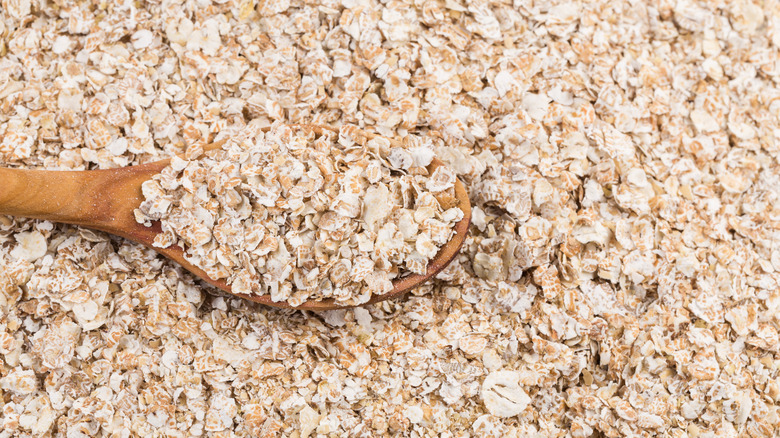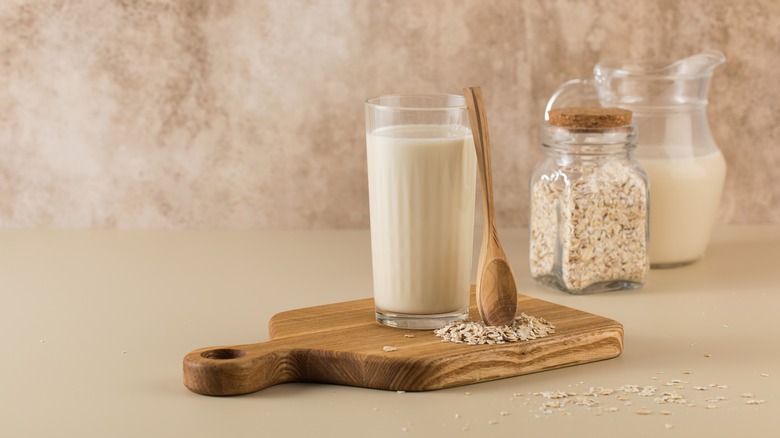Why You Can't Use Instant Oats To Make Oat Milk
Oat milk has become so widespread, so quickly, that it's almost unsettling to watch someone order a latte without it. (Oh, you drink whole milk, do you? What is this, the 2010s?) Oat milk is undeniably the darling of the plant-based milk world, but there's a small problem with it: It's gotten extremely expensive.
If you're a dedicated oat milk stan, you've probably been told by your earthiest-crunchiest friend that it's really not that hard to make your own homemade oat milk – and that you could save a lot of money if you just bought a bag of oats and took care of things yourself. But before you lean into your vegan homesteader fantasies, you might want to make sure you're buying the right oats. Because if you accidentally use instant oats to make oat milk, the result will be gummy, flavorless, and ultimately undrinkable. And it all has to do with the finicky science of oats. They simply soak up water too darn fast.
It's all in the oat
There are three main types of oats: steel-cut oats, rolled oats, and quick oats. Each of these comes from the same plant material but is processed differently. Steel-cut oats are the least processed. Rolled oats are the mid-way point, and are par-cooked before packaging. Quick oats are also par-cooked, but to a further extent, so that they barely need any time to cook.
Rolled oats are generally considered to be the standard for making oat milk, the Goldilocks of the oat family. This is because quick oats, which are already nearly cooked, are primed to soak in a lot of water. And when the water you're using spends too much time in contact with the oats (i.e., by being sucked up by them), your oat milk will turn slimy. Once blended, the oat sludge will separate out from the liquid and form a gummy layer at the bottom of your container, leaving the liquid at the top thin and pretty much flavorless.
How to avoid the slime
Slimy oat milk is a terrible thing to encounter, but it's unfortunately all too common. To prevent it, you want to keep your oats from releasing starch by minimizing the time your oats spend in water. Don't soak them, and don't use hot water. Blend your oats for no more than a few seconds, and strain them without pushing the mealy remnants through the mesh. If using a bag designed for nut milk, don't over-squeeze your oats as you do with nuts, which will push out the starch, making it feel gloopy.
If you really want to go all-out to prevent slimy oat milk, you can take note from major oat milk producers like Oatly. Many of them use digestive enzymes to process their oat milk and prevent slime. Store-bought enzymes, like amylase, can be added to your oats before blending. Just make sure to wash them after soaking them in the enzyme solution for creamy, dreamy plant-based milk.



